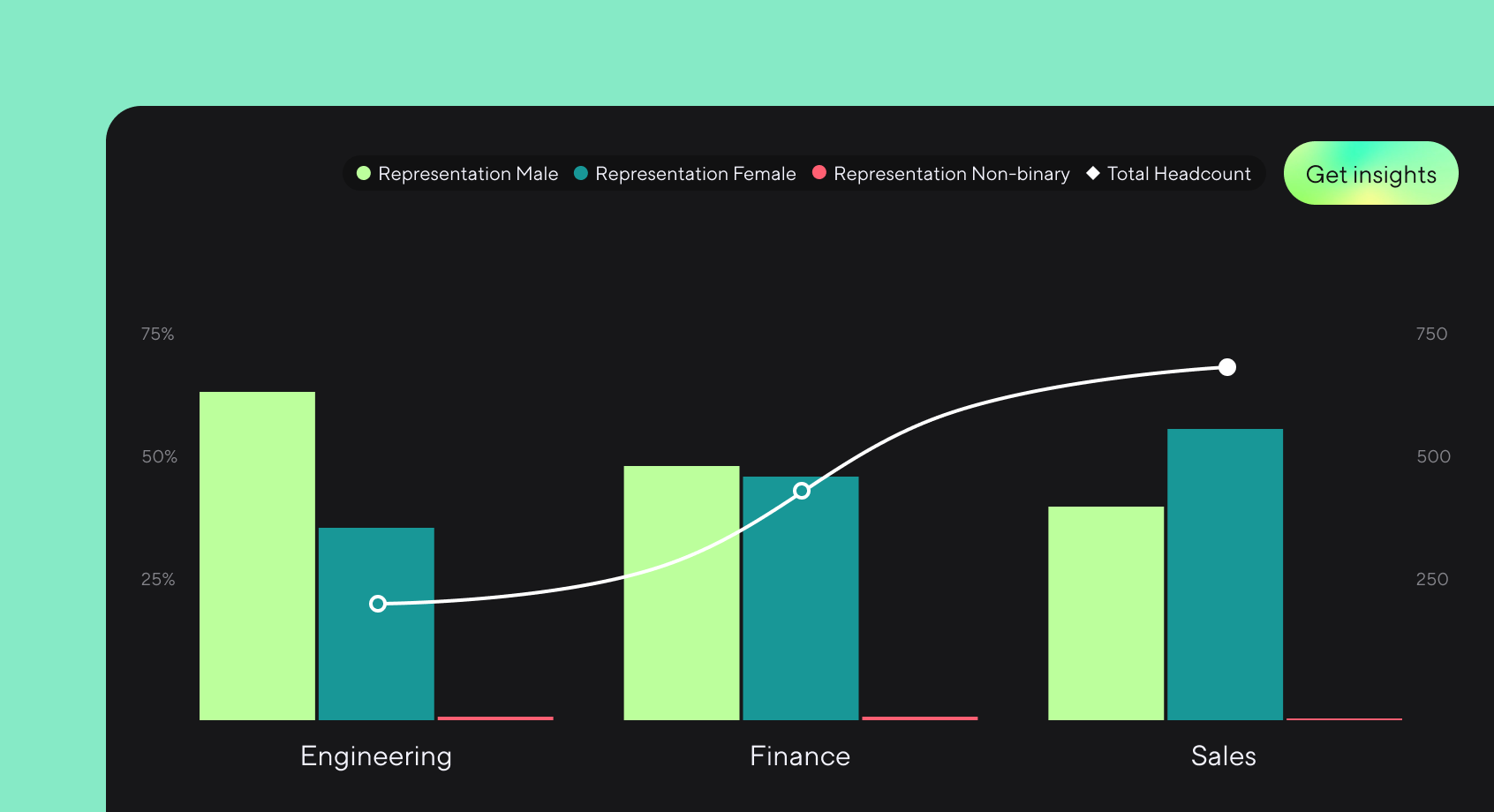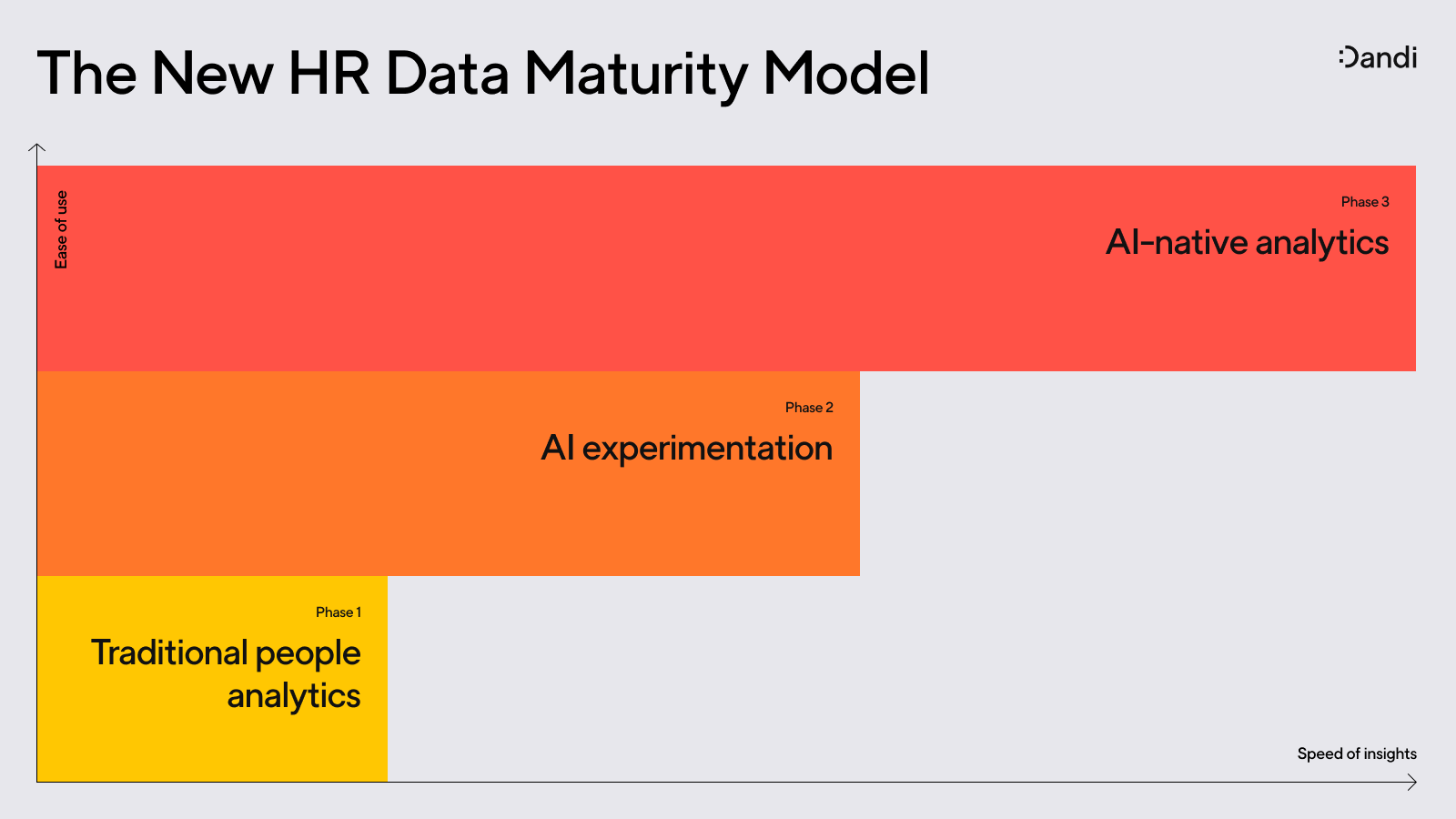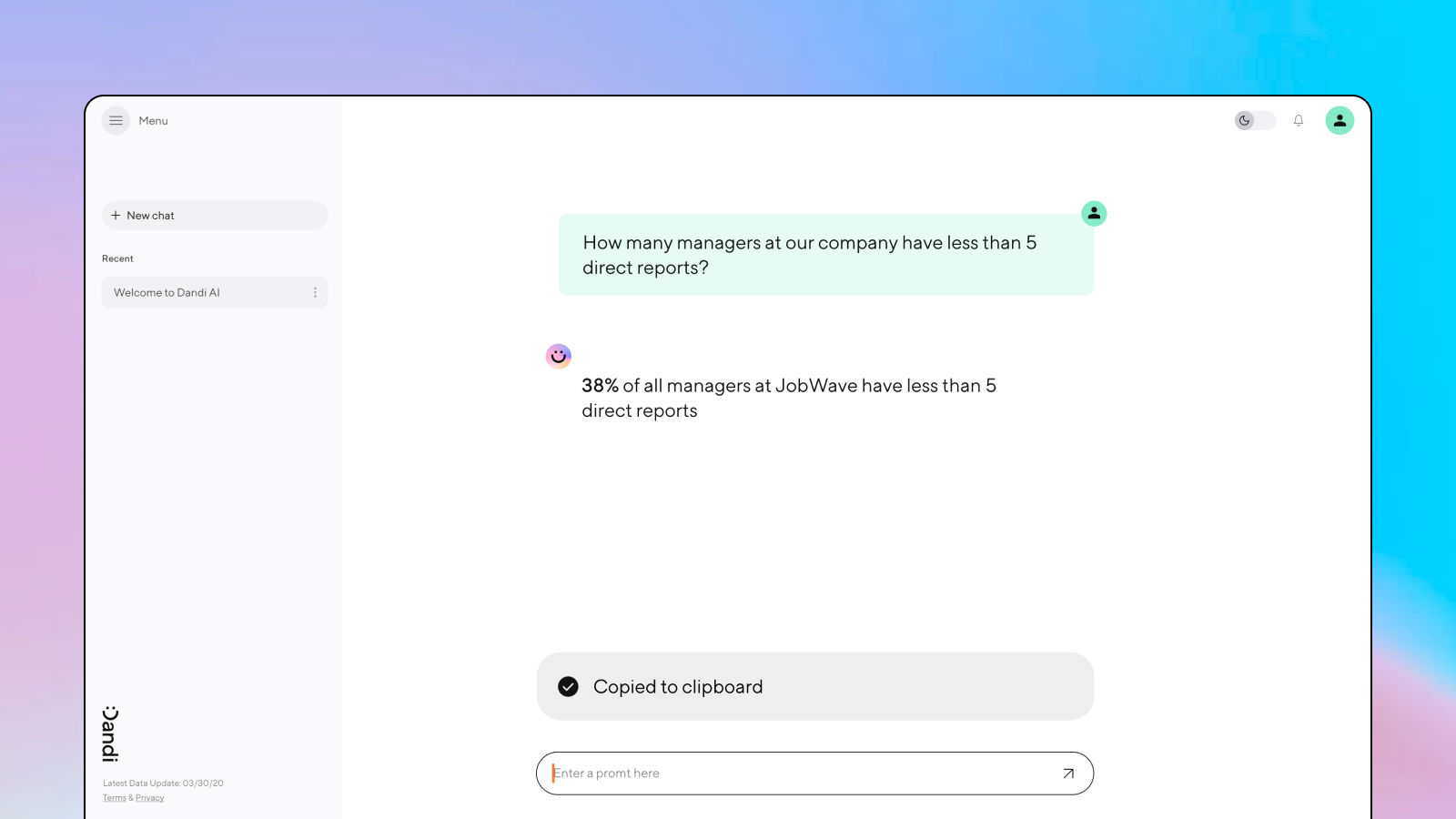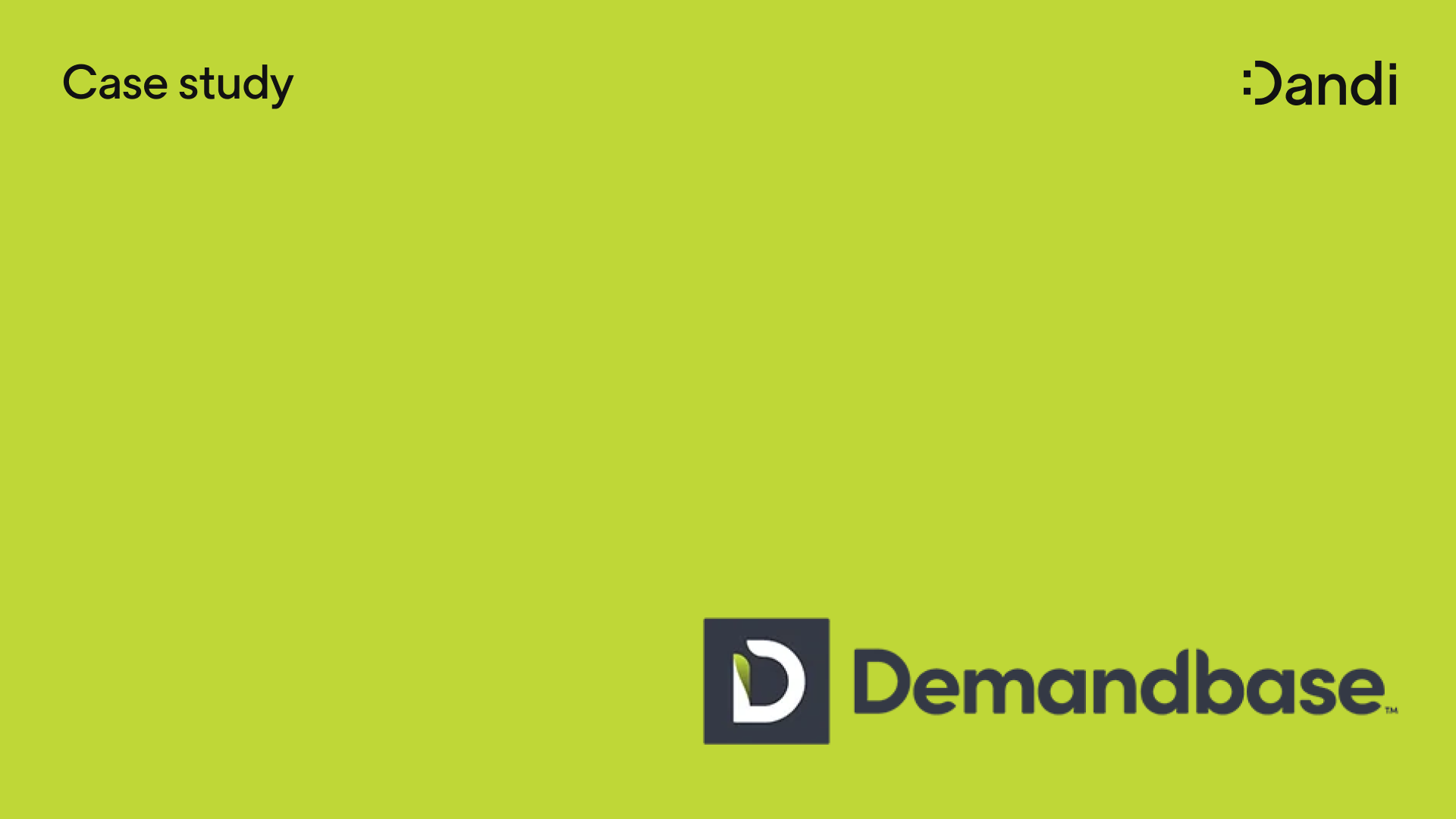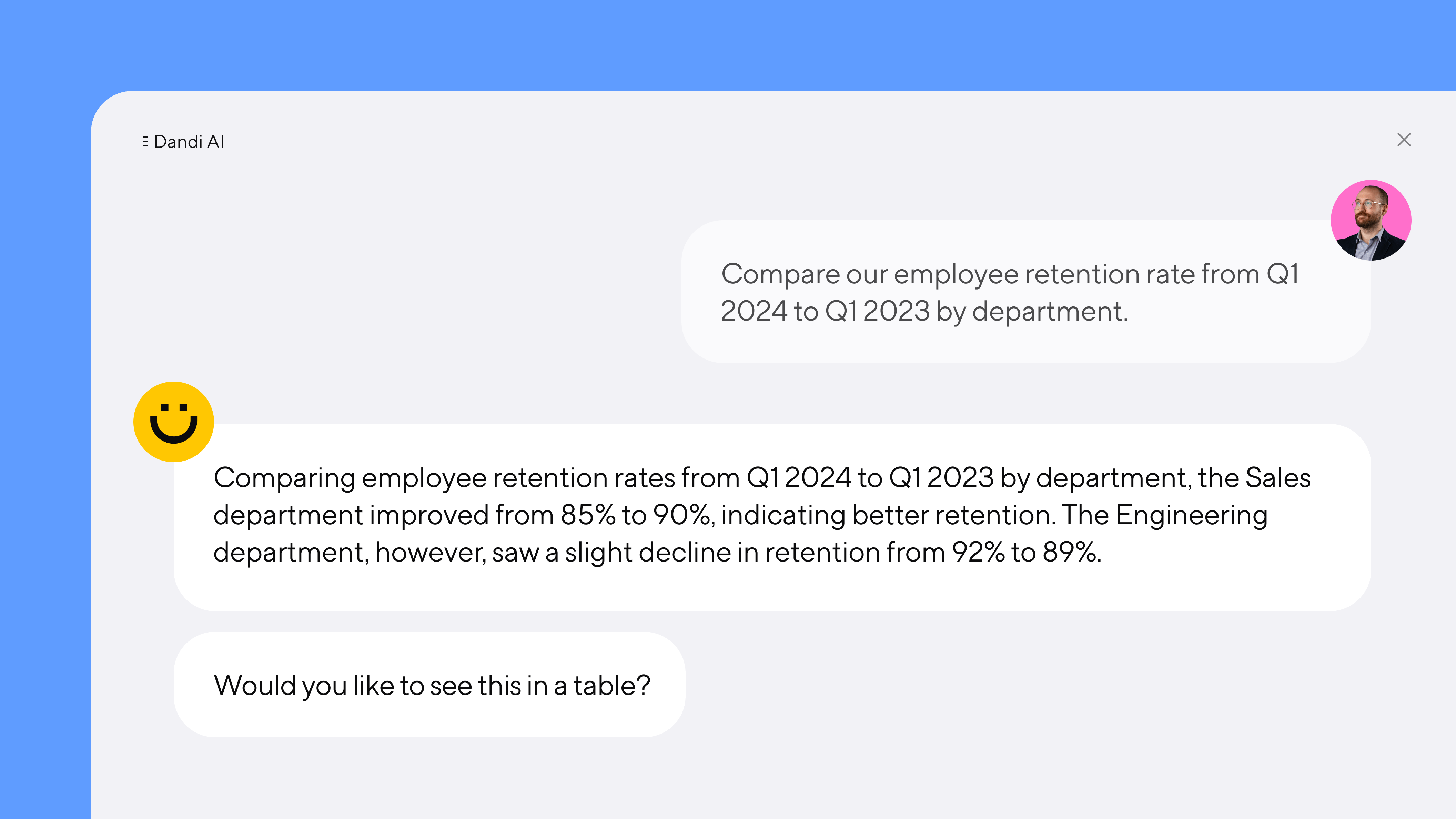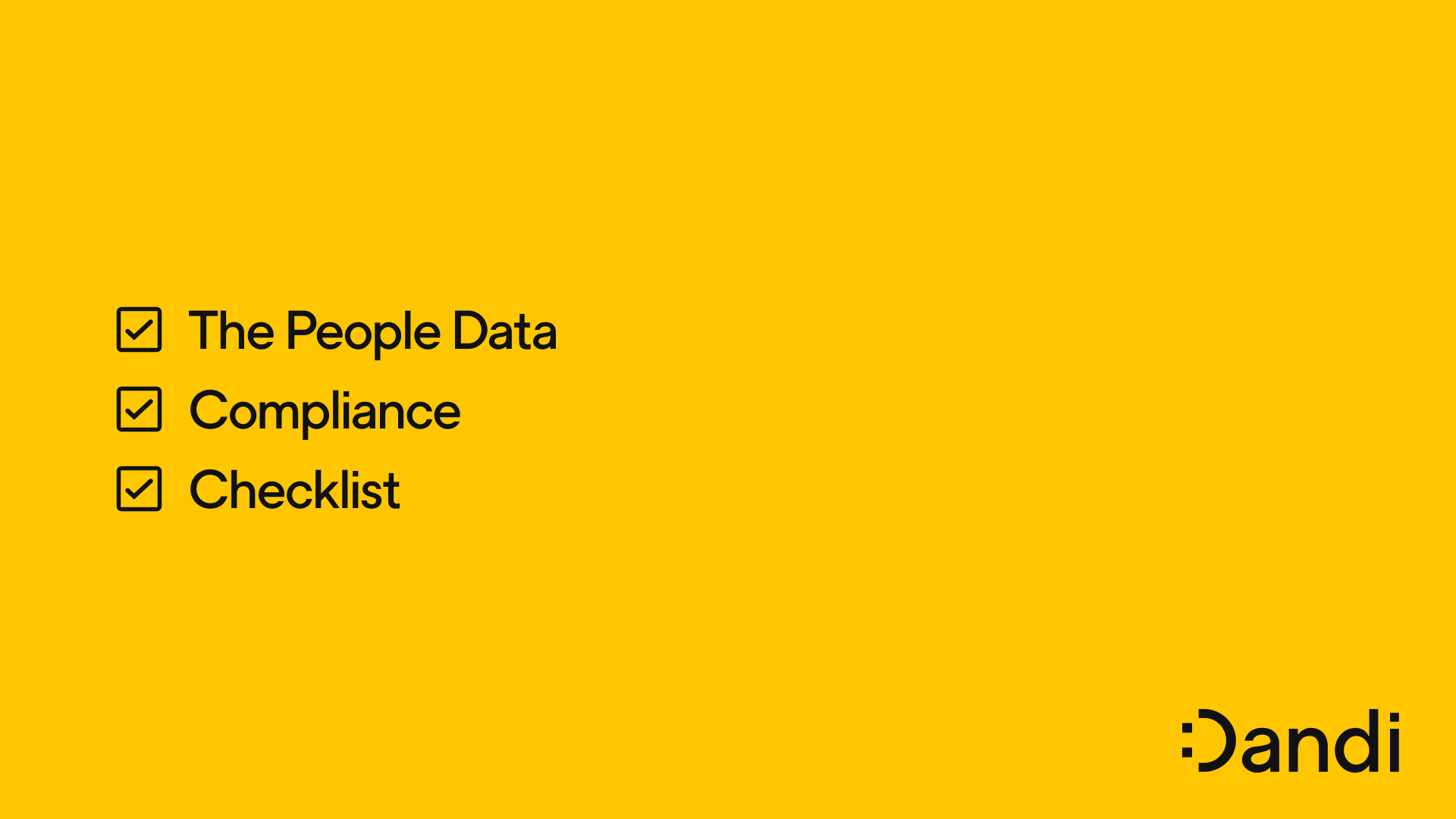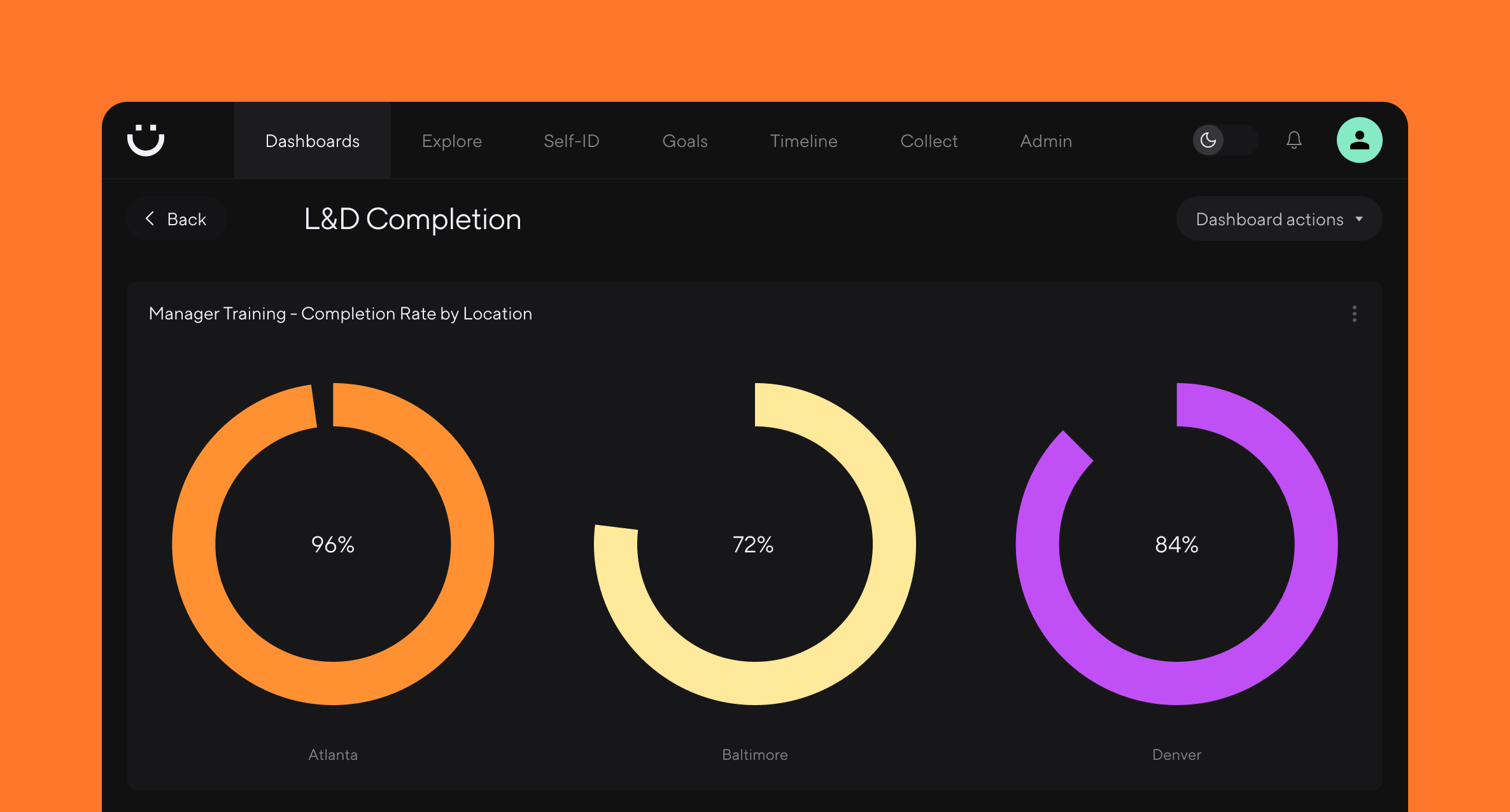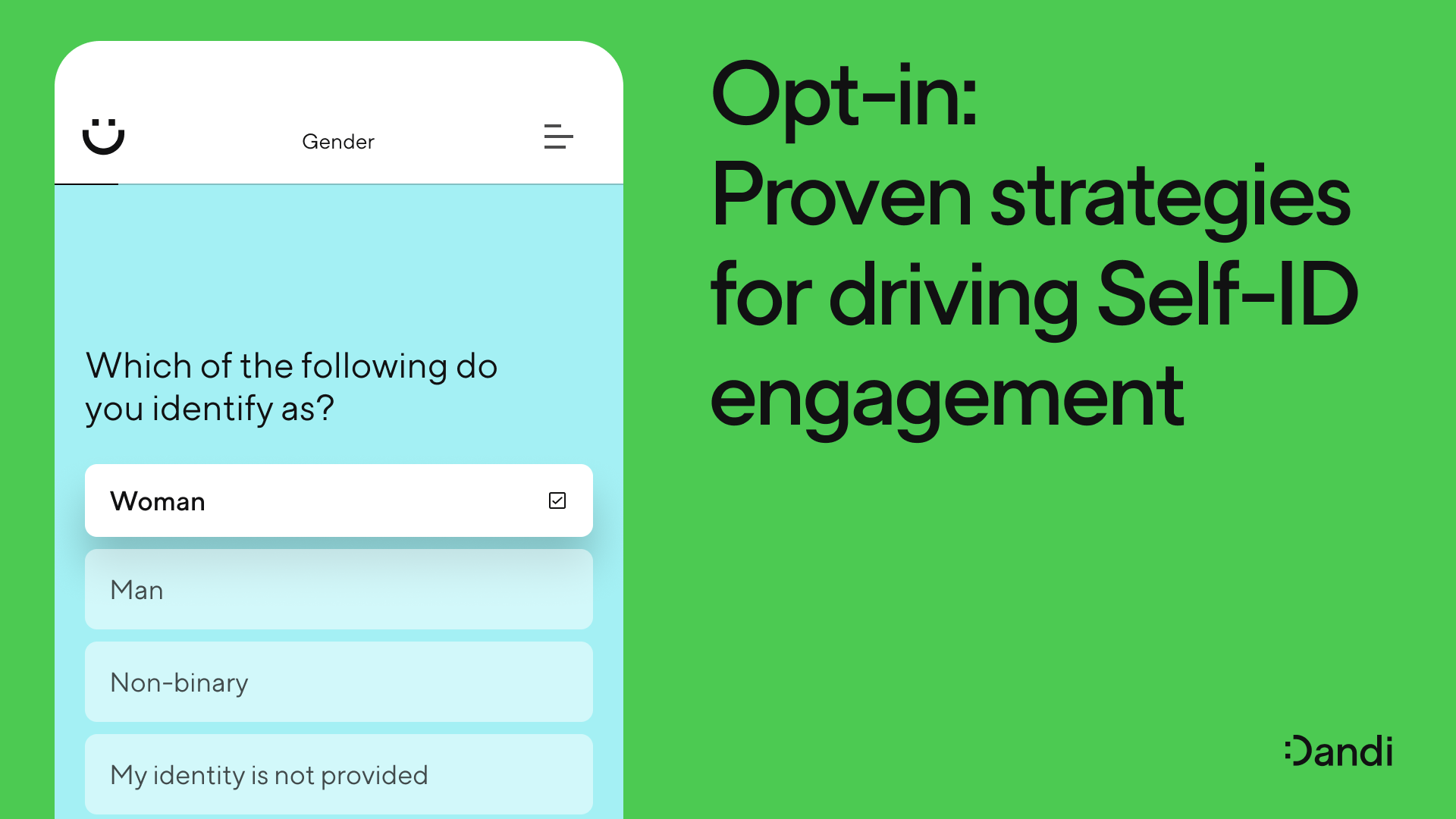DEI Journeys: How MiQ’s Sara Axelbaum made the jump from advertising exec to DEI leader

Camille Hogg, PhD – Mar 22nd, 2023
Today we're launching DEI Journeys, a new series highlighting the diverse career paths of leaders across the DEI space. We're thrilled to kick things off with Sara Axelbaum, who turned DEI from a part-time passion into a global leadership role.
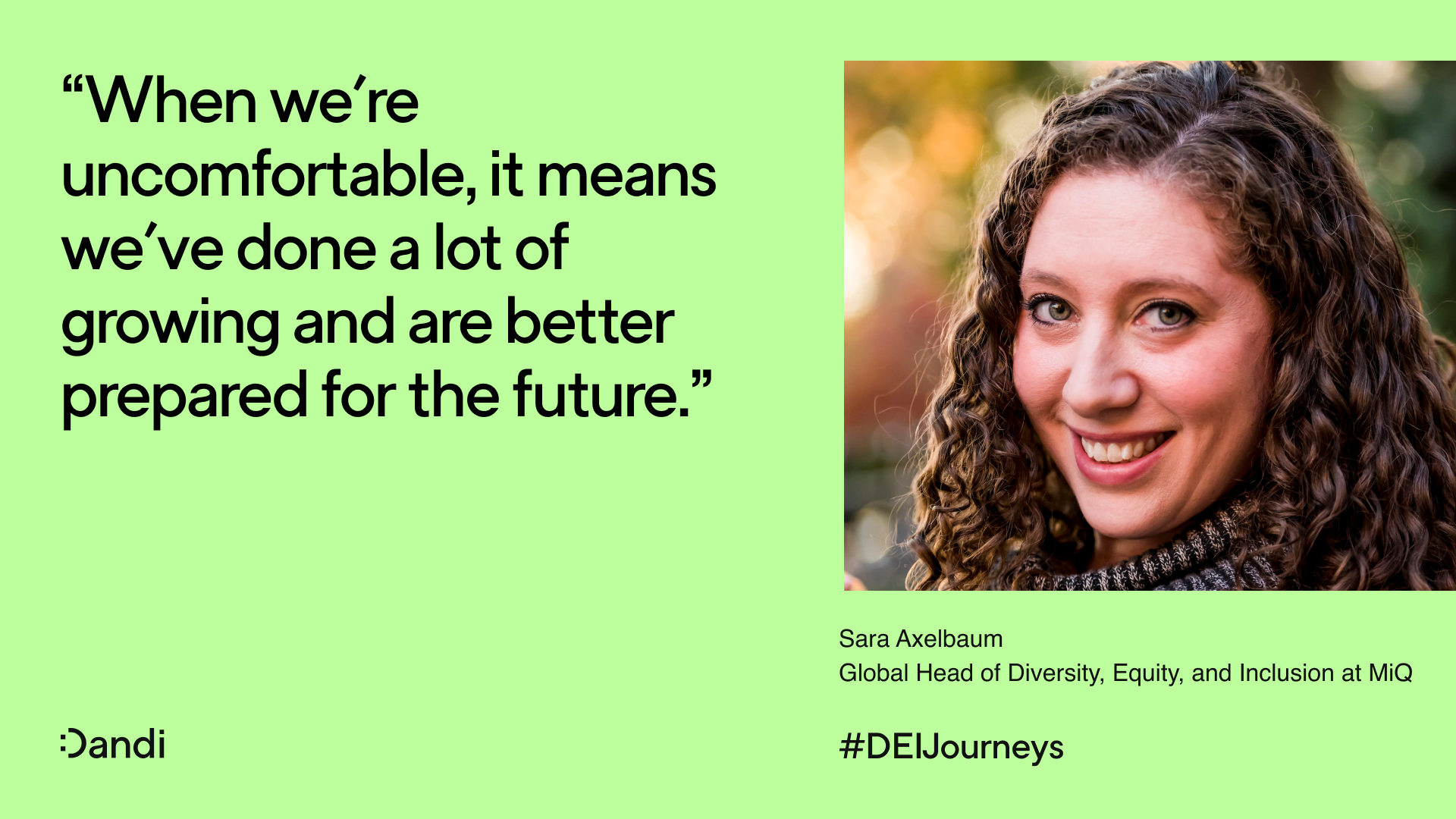
Sara “Axel” Axelbaum, Global Head of Diversity, Equity, and Inclusion at MiQ, started out in advertising before she came to DEI. A world characterized by fat budgets and expense account dinners, Axel found that while advertising had moved on somewhat since the Mad Men days, the sexism embedded at its core hadn’t.
“I guess the most honest version of this story is that I immediately encountered so many obstacles as a young woman in the industry,” she says. “And when I went to report them to HR, I was told, ‘Oh sweetie, your skin will thicken up.’ That’s what the industry is like. It’s on you to figure out how to work your way through it.”
Axel knew that changing an industry-wide status quo wasn’t on her, but it did galvanize her to start exploring grassroots ways of enacting change as her career grew. Over time, what started as a passion project eventually led her to entirely change her career path.
“I already had a job,” she says. “DEI was what I did in my spare time, because it gave me purpose. It was always one of those things I did off the side of my desk. But it started to take off like a rocket ship."
A fortuitous opportunity came when she was given the gift of severance at eight months pregnant and finally had time to take a breath.
“For the first time, I was able to jump off the ladder I’d been climbing and say, what do I want to do next? At the time, I thought nobody was out there getting paid to do a job like DEI. Nobody cared about this stuff—it was a side project at best. But what I didn’t realize was that this was just the beginning.”
Axel’s biggest learning stepping into a DEI leadership role: Pushing past resistance and discomfort
Axel had been active in organizational affinity groups and ERGs throughout her career, eventually rising through the ranks to lead them and become an executive sponsor. But it was when she joined a new organization that she noticed something missing that felt integral to her in a male-dominated environment: A women’s group. So, she asked to form one.
She was told not to ruffle any feathers. But Axel knew that feathers were in desperate need of ruffling.
“It’s just not in my disposition to avoid disrupting the status quo,” she shrugs. “They said, ‘We don’t do that here.’ I said, ‘I do.’ I founded a women’s coalition, and six months later, we launched with a 3,000 member employee resource group. I loved the change I’d been able to make. We’d had this huge success of making DEI more absorbable and discernible to everyone at the company in a way that went beyond the legal governance we were required to do.”
A lot of organizations see discomfort as evidence that their efforts aren’t working, instead of realizing that they’re going in the right direction.
Over her years of DEI leadership, Axel has since realized that the resistance she encountered came from a place of discomfort. But that, she says, is where the emotional data is—and it provides critical information on where we need to evolve and adapt. That’s what she pushes for now, at MiQ.
“A lot of organizations see discomfort as evidence that their efforts aren’t working, instead of the fact that they’re going in the right direction. But if we looked at other business challenges in the same way, and quit because we were uncomfortable or didn’t know how to tackle it, then the whole organization would crumble. Because when we’re uncomfortable, it actually means we’ve done a lot of growing and are better prepared for the future.”
Axel’s biggest success scaling DEI: Weaving trust and transparency into every process
When she joined MiQ, one of Axel’s first missions was to start building a DEI function with transparency and accountability at its center.
“One of the founders asked me, ‘If you could only achieve one thing at MiQ what would it be?’” Axel says. “And I said that I wanted to convince them to publish a report. My initial goal was to publish it internally, but I wanted to convince them to publish it externally as well. Much to her surprise, the initiative was immediately green lit, which she views as a testament to an organization that is truly committed to DEI.
“You need to go back to the foundation of what you need to do to become transformative. In DEI, that starts with building trust. People need to trust that you’re going to use their data properly. They need to trust that the discomfort in disclosing their details will be worth it and will be treated with integrity.”
People need to trust that you’re going to use their data properly. They need to trust that the discomfort in disclosing their details will be worth it.
MiQ’s IDEA report is a reflection of that trust and transparency in action. It reports, in unflinching detail, where MiQ is doing well on DEI—and where more work is needed. Acknowledging these areas of improvement publicly shows intention, which builds trust.
“We rely on data for everything we do as a company,” Axel says. “I wanted our IDEA report to be couched in as much accountability as our advertising campaigns. In our very first report, we discovered that we were actually paying women in the bottom half of their salary band, and we made a huge effort to close that gender pay gap. Once it was fixed, I think a lot of people felt that it was over, but right now, we’re seeing it start to open back up again. That’s where the accountability piece comes in—having that data gives me an opportunity to go back to our leaders and show what we need to focus on. And it gives them objective direction to make good on their commitment to systemic change.”
Sara says that building trust and accountability relies on processes, as much as intention. She has three key ways she does this at MiQ:
-
Be clear with employees about how you’ll use their data, who has access to it, and why
-
Report transparently and regularly at an internal and external level on your organization’s key DEI successes and challenges
-
Take visible action on data by identifying root causes of issues, and revisit data regularly to track the success of any changes
Axel’s one action that made the most impact: Viewing DEI data through an introspective lens
Building a data-driven DEI function was Axel’s first priority when joining MiQ. But, she says, that doesn’t mean she unquestioningly trusts the numbers in front of her, or acts immediately on any issues that appear to pop up. Instead, she uses the numbers as a clue that more investigation is needed.
“Having constant access to data means we’re never flying without guidance,” she says. “But when we see something that looks like an anomaly, it’s an opportunity to do an exploration. I remind people all the time that when the data shows that something is inequitable, it doesn’t necessarily mean that it is.
We have to stay in the mindset of following clues, and using our data to make sure we keep asking questions.
“It could be completely rationalized—but let’s make sure it is, and not based on a default of an inherent bias. It means that we notice if there is a pattern that women of color are more likely to be paid lower than White men in a specific team, for example. But when we look at the data, it shows that there are five people on that team. One is a woman of color, and she has less experience and fewer accounts than others. There’s a rational explanation for why our data shows inequity, meaning we know we can feel good about that reason. On the flip side, if we notice that there is a trend in the data we need to explore, we can be more introspective to uncover why and make necessary adjustments, For example, making sure that the salary a person brings from a previous job is not the rationale for paying her below her male peers with similar experience and purview.
“We have to stay in the mindset of following those clues, and using our data to make sure we keep asking questions. Doing that deep introspective work naturally leads to more equitable decision-making, because it’s not being done in the shadows, possibly with bias as a default.”
Ultimately, Axel’s experience in the “business side of the business” gave her the analytical mindset that paired perfectly with her tenacity to ruffle at least a few feathers in the pursuit of positive change. But the journey is still hard. Trust can be an uphill battle. The discomfort of change is still bright and sharp. But that doesn’t scare her.
“For the longest time, discomfort has been seen as the enemy,” Axel says. “We see organizations fixing a few of their DEI issues, and then realizing, this is hard. They realize they might have to sacrifice something they like or do something new and scary.
"But that realization is a key part of moving from reactionary DEI efforts to actually moving it forward. Instead of saying, ‘We don’t know how to do this,’ and backing away, we have to start saying, ‘How do we envision diversity as the future?’ That’s where we get to progress.”
More from the blog
Announcing more powerful Dandi data visualizations
Team Dandi - Oct 23rd, 2024
The New Maturity Model for HR Data
Catherine Tansey - Sep 5th, 2024
Buyer’s Guide: AI for HR Data
Catherine Tansey - Jul 24th, 2024
Powerful people insights, 3X faster
Team Dandi - Jun 18th, 2024
Dandi Insights: In-Person vs. Remote
Catherine Tansey - Jun 10th, 2024
Introducing Dandi AI for HR Data
Team Dandi - May 22nd, 2024
5 essential talent and development dashboards
Catherine Tansey - May 1st, 2024
The people data compliance checklist
Catherine Tansey - Apr 17th, 2024
5 essential EX dashboards
Catherine Tansey - Apr 10th, 2024
Proven strategies for boosting engagement in self-ID campaigns
Catherine Tansey - Mar 27th, 2024
